8 Supplements for Bloating That Will Help You Beat the Bloat
Is there a swifter way to ruin your day than a bad bout of bloat? Best-case scenario, it has you walking around wondering why it feels like the button is about to pop off of the jeans that fit you an hour ago. Worst case, it leaves you lying on the sofa, clutching your stomach and asking for bloating relief. While there are all kinds of hacks for avoiding belly bloat altogether—like steering clear of salt, carbonation, and fatty, spicy, and acidic foods—one possible solution is taking the best supplements for bloating.
- Holly Klamer, MS, RDN, Michigan-based registered dietitian nutritionist
- Jeff Gladd, MD, integrative medicine physician and chief medical officer at Fullscript
- Jonathan Kung, MD, gastroenterologist at Mount Sinai
- Meg Gerber, RD, LD, IFNCP, CGN, registered dietitian and founder of Grounded Nourishment
- Tanya Zuckerbrot, MS, RD, dietitian and founder of F-Factor
Before jumping right to a supplement, however, try and attempt to identify the root cause, says Jeff Gladd, MD, chief medical officer at Fullscript, and integrative medicine physician. "Often, working with a provider versed in integrative medicine can help you in this journey and build a plan for short- and long-term success. The focus areas to consider are your digestive function (both the food breakdown as well as the movement), your diet, and the balance of the good and potentially problematic bacteria that reside in the digestive tract," he says.
What to look for in a supplement for bloating
Jonathan Kung, MD, a gastroenterologist at Mount Sinai and medical advisor to microbiome company Nouri, says keeping the billions of bacteria that live in your gut within a healthy equilibrium is crucial to overall health and helps keep bloating at bay. "Pre-, pro- and post-biotics are all important for maintaining a balanced gut. You should look for supplements that contain clinically-proven strains of bacteria that support gut health and have at least 10 billion CFU," he says.
{{post.sponsorText}}
You should also look for a supplement or fiber supplements that are third-party tested, says Holly Klamer, a registered dietitian nutritionist and dietitian with USARX. "On the label it will say if it is tested from sources such as NSF International, Consumer Lab, or U.S. Pharmacopeia (USP)." Additionally, before taking a supplement, check with your doctor first, especially if you're on any medication, Klamer advises. "Even if a supplement is natural, it can interfere with other medications."
Should you take a supplement for bloating before or after you eat?
"Prevention is the key to combating bloating, and evidence shows that certain supplement ingredients may help ward off uncomfortable gas and bloating, particularly when taken before a meal," says Dr. Gladd. Taking digestive enzyme supplements prior to a meal may prevent gas and bloating by helping your digestive enzymes break down the carbohydrates, fats, and proteins in the foods you eat, he says.
Whether your bloat is brought to you by a salty food fest, a hangover, or a particularly greasy post-bootcamp breakfast, here are eight supplements that will help you keep bloat away
Best supplements for bloating
1. Probiotics
Priobiotics (which have a zillion other helpful health properties) are really the OG gut-health supplement. "Good living bacteria aid digestive health by regulating and normalizing bowel movements,” says Tanya Zuckerbrot, MS, RD, a New York City-based registered dietician and author of the The F-Factor Diet. You can find these “friendly bacteria” in fermented foods like miso, kimchi, or yogurt. If sauerkraut isn't exactly your jam, look for a supplement that includes a living bacteria called Lactobacillus acidophilus, which you can find in powder, capsule, or tablet form. Just make sure you store them in a cool environment, because the whole idea is that these babies need to be alive to work (it’s not as gross as it sounds, I promise).
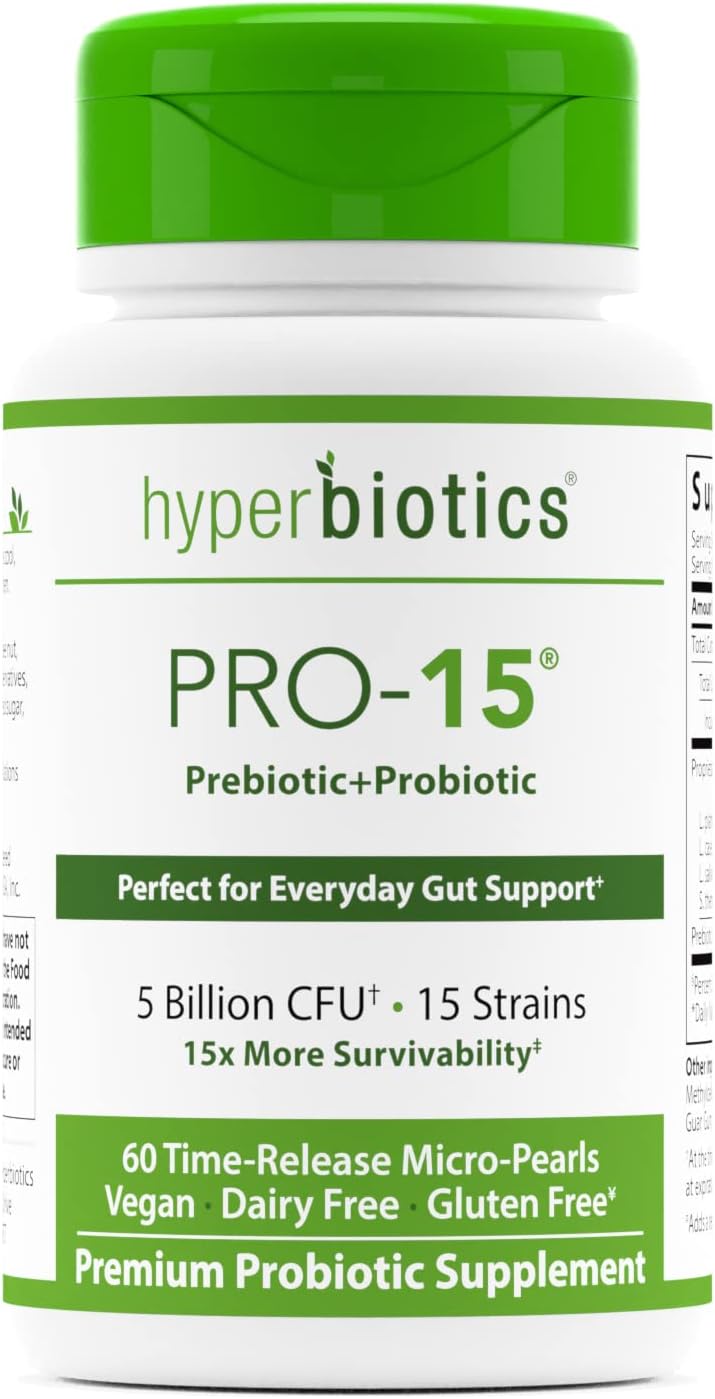
Hyperbiotics Probiotic Release Pearls contain 15 targeted strains, including Lactobacillus, Bifidobacterium, and Streptococcus. These organisms can help your stomach bypass acid and help replenish good bacteria in your digestive tract. Plus, it’s vegan and gluten-free!
Pros:
- Has 15 probiotic strains
- Helps with stomach acid and replenishing good bacteria
- Doesn’t require refrigeration
Cons:
- Larger pill to swallow
- Pricey
2. Lactase enzyme
Bad news, ice cream fiends: The majority of people lose their full ability to digest lactose after infancy, which makes eating dairy products (yes, even Halo Top) a pretty tough business. “[People who are lactose intolerant] are missing the crucial enzyme, lactase, needed to break down the sugar, lactose, found in dairy products,” says Zuckerbrot. And that leads to bloating.
Instead of canceling your standing wine-and-cheese date with your bestie, click *add to cart* on some lactase enzyme supplements instead. Take them before you eat and they’ll help fill in for what your body is missing, making dairy digestion easier on your system.
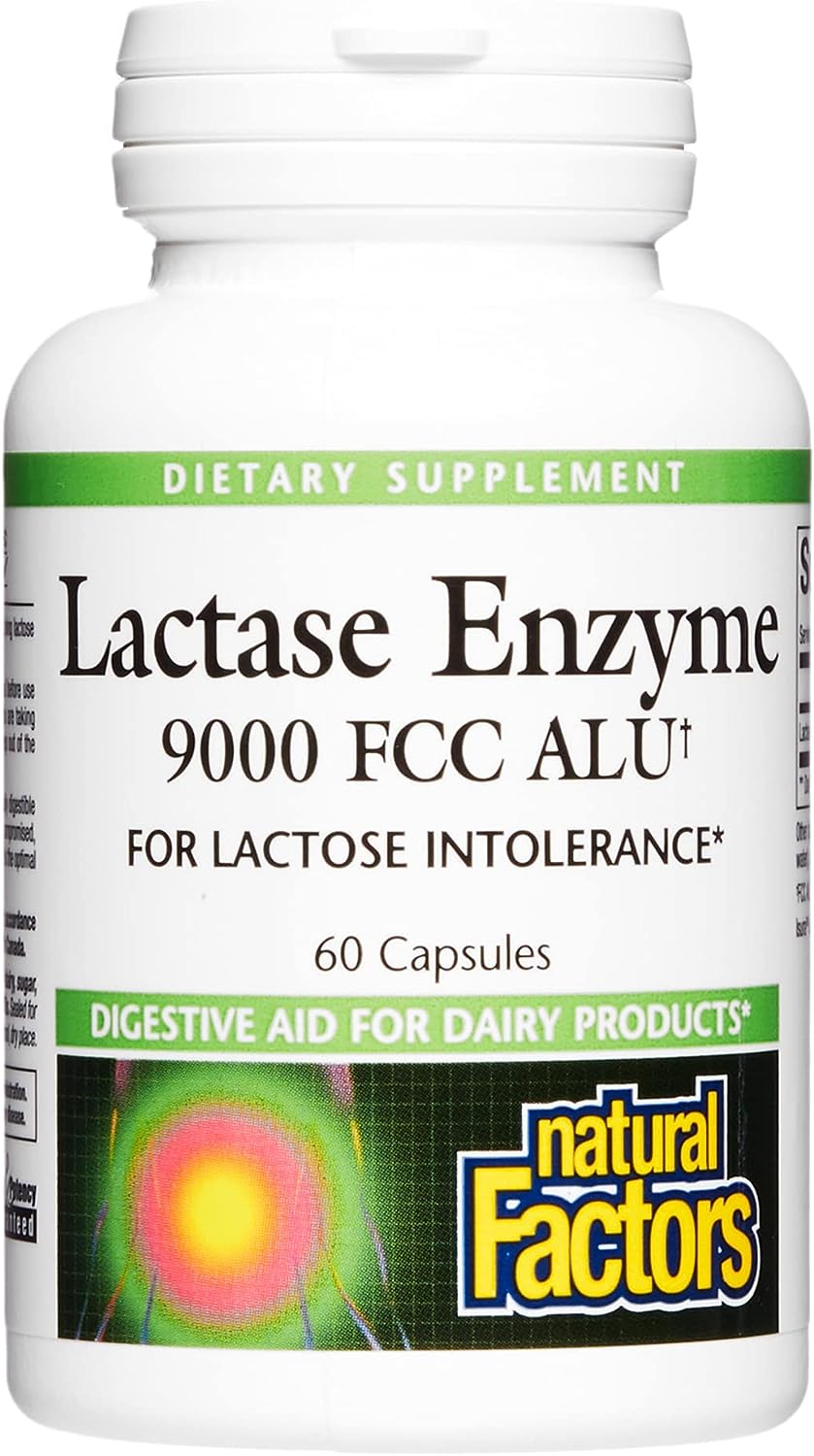
Whether you’re bloating after eating ice cream or cheese, consider a lactaste enzyme digestive aid. This one helps you break down lactose, so you can relieve symptoms of gas, bloating, and diarrhea while enjoying your favorite dairy products. Just consume before eating dairy, and you’re good to go.
Pros:
- Affordable
- Breaks down lactose
- Relieves symptoms of gas, bloating, and diarrhea
Cons:
- Larger pill to swallow
3. Cinnamon
If you've ever hit up a street meat cart after a night spent downing tequila gimlets (hey, we've all been there), you know what it feels like when that greasy gyro comes back to bite you in the stomach a few hours later. "Fat digests slowly and can often exacerbate bloating and gas pains,” Zuckerbrot says.
The next time it happens, reach for cinnamon, which may help prevent bloating by helping fats digest more easily. Sadly, you can’t get the same results from downing a full tray of vegan cinnamon buns—but a girl can dream.
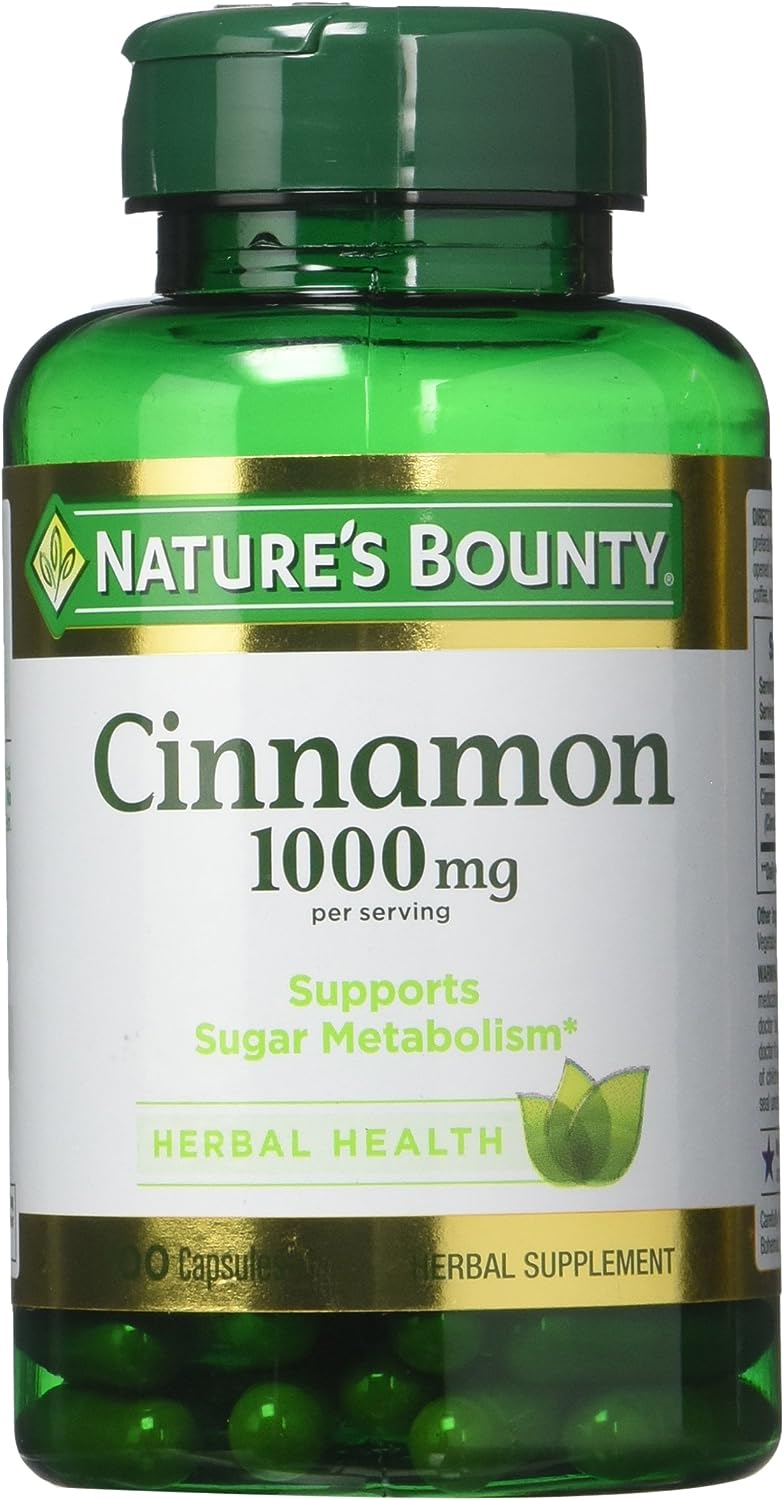
Loaded with antioxidants and has anti-inflammatory properties—is there anything that cinnamon can’t do? We spoke too soon because cinnamon can combat the bloat, too. These capsules are easy to consume, and each serving delivers a whopping 1,000 mg to help your body digest fats more easily. What’s more, it’s gluten-free!
Pros:
- Contains 1,000 mg per serving
- Helps to digest fats
- Gluten-free
Cons:
- None
4. Ginger
Ginger is basically the supplement equivalent of the Headspace app: It helps put your intestines into relaxation mode, allowing food to pass more quickly and speeding up digestion and help with bloating after eating. "Ginger is also considered an appetite suppressant," says Zuckerbrot. "Eating or drinking ginger can prevent you from eating too quickly, which normally causes bloating.” Eating quickly can also cause serious abdominal discomfort, so Zuckerbrot advises taking at least 20 minutes for each meal.
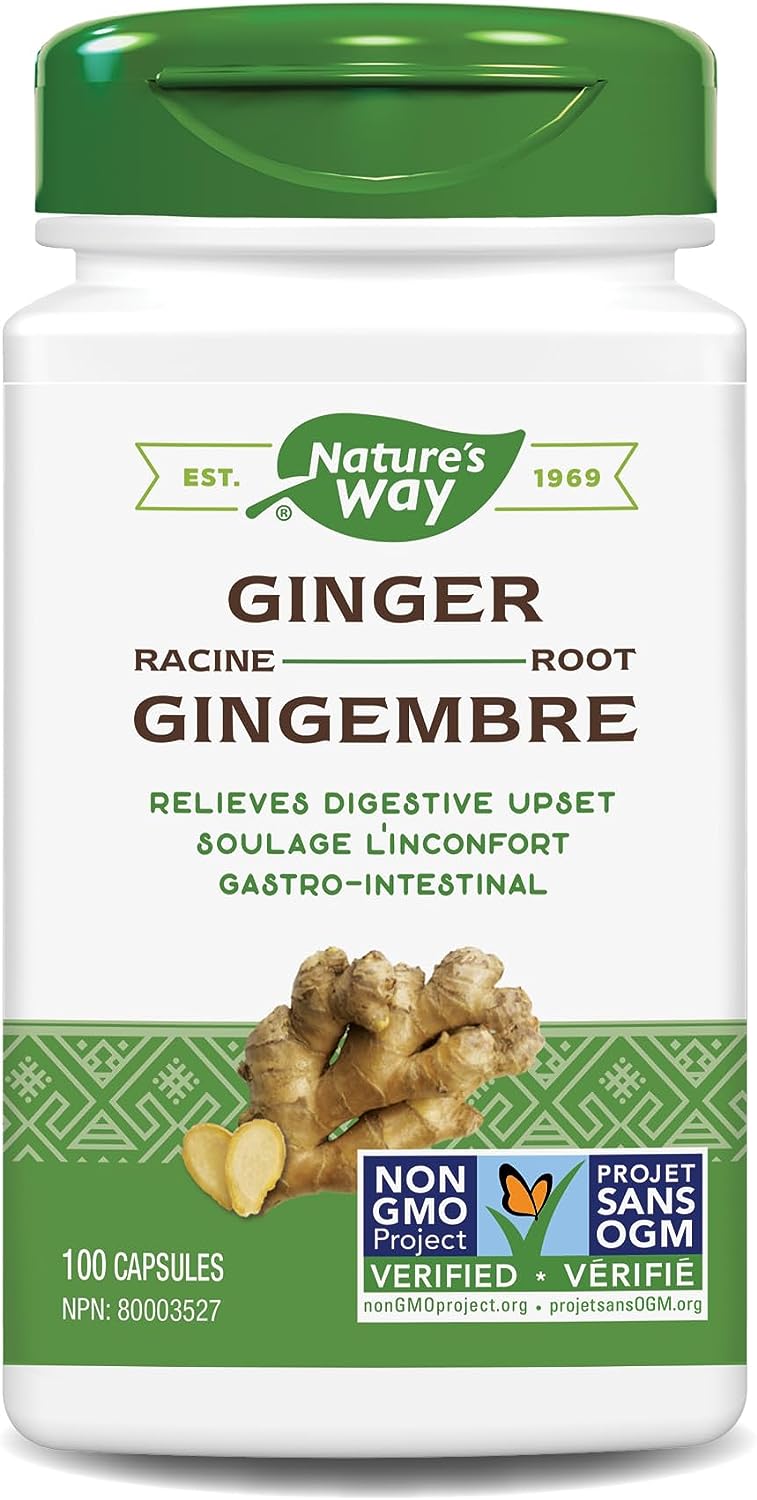
If you’re looking to switch places with a grumpy tummy, consider ginger supplements. These ginger root ones offer digestive support when you’re not feeling your best. Per serving, you’ll get 1,100 mg. Even more, they’re free of salt, dairy, wheat, corn, soy, and preservatives. Kick digestive issues to the curb with Nature’s Way Ginger Root.
Pros:
- 1,100 mg per serving
- Free of preservatives and allergens
- Supports healthy digestion
Cons:
- Scent may be too strong for some
5. Peppermint
Turns out there's a reason Tums and Pepto-Bismol are mint-flavored. According to Zuckerbrot, taking a peppermint supplement increases the amount of gastric acid in your stomach, which aids in digestion. Just be sure you aren’t getting your peppermint fix via a stick of Stride: Between the sorbitol and the air you swallow, chewing gum can be a major cause of belly bloat.
"Peppermint oil is a naturally-occuring carminative, a type of herb known to prevent and reduce gas formation," adds Dr. Gladd. Peppermint oil also contains L-menthol, a compound that helps relax the smooth muscle of the bowel wall. It can help relieve or prevent gas and bloating when taken about an hour before a meal. However, Dr. Gladd says due to its relaxing effect, peppermint oil may promote the symptoms of esophageal reflux. "I advise my patients to always use enteric-coated peppermint oil capsules to better ensure its effect lower in the digestive tract, where the bloating is often occurring."
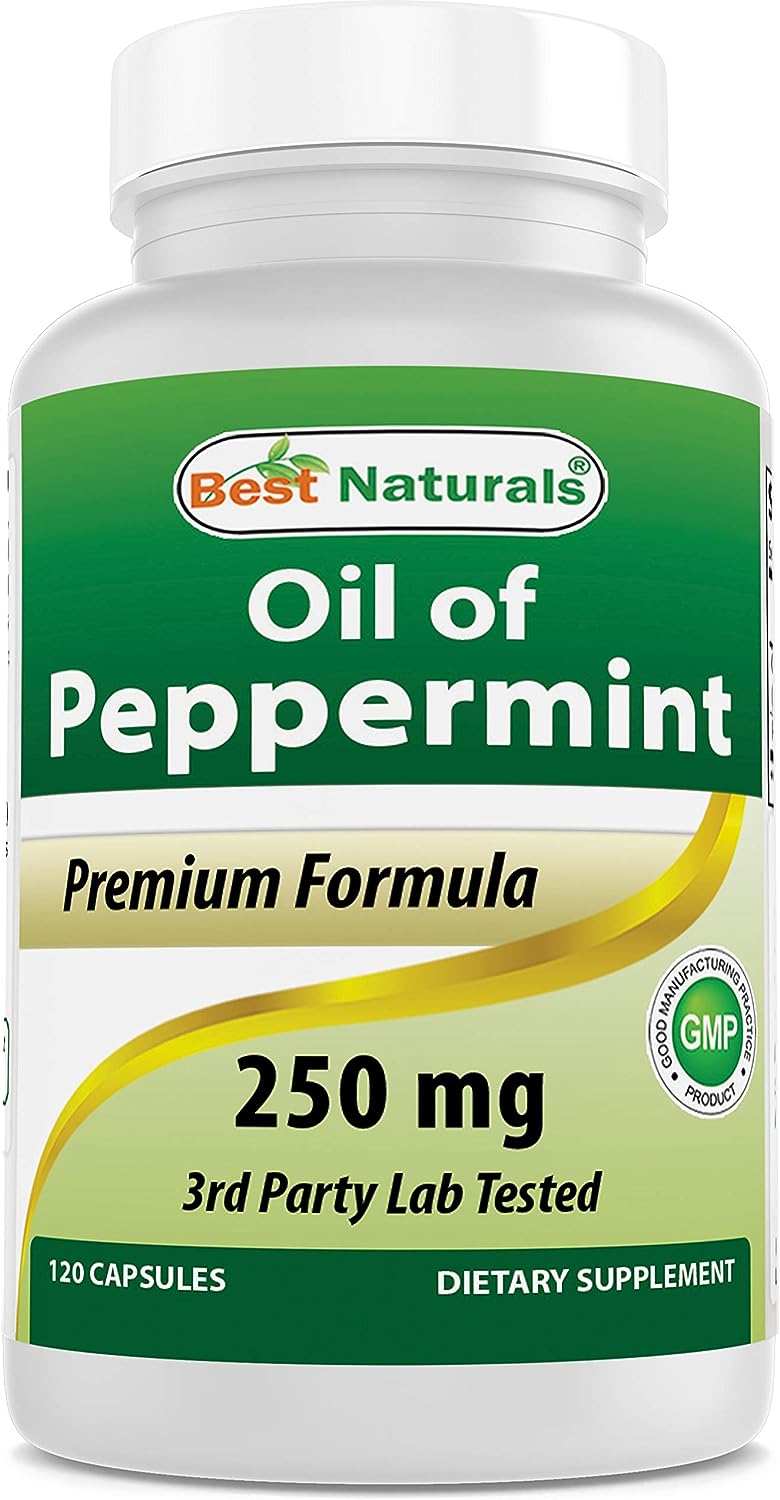
Peppermint oil can improve digestion by increasing the amount of gastric acid in your stomach. And Best Naturals deliver 50 mg of peppermint oil per serving. Other notable features include a gluten-free formula, and it’s free of artificial flavors and sweeteners (yay).
Pros:
- 250 mg of peppermint oil per capsule
- Gluten-free
- Free of artificial flavors and sweeteners
Cons:
- Has a strong smell
6. Dandelion or chamomile
For the wellness-obsessed, the phrase “shake it like a salt shaker” should translate to "shake it very slowly and cautiously or not at all.” According to Zuckerbrot, even though we need some salt in our diet, consuming too much of it can lead to fluid retention and bloating. If you’re experiencing salt-induced swelling, reach for a cup of dandelion or chamomile tea (or either herb in supplement form). Both act as natural diuretics that help eliminate excess water from your system—which means you won’t have to spend your Saturday getting your wedding band resized.
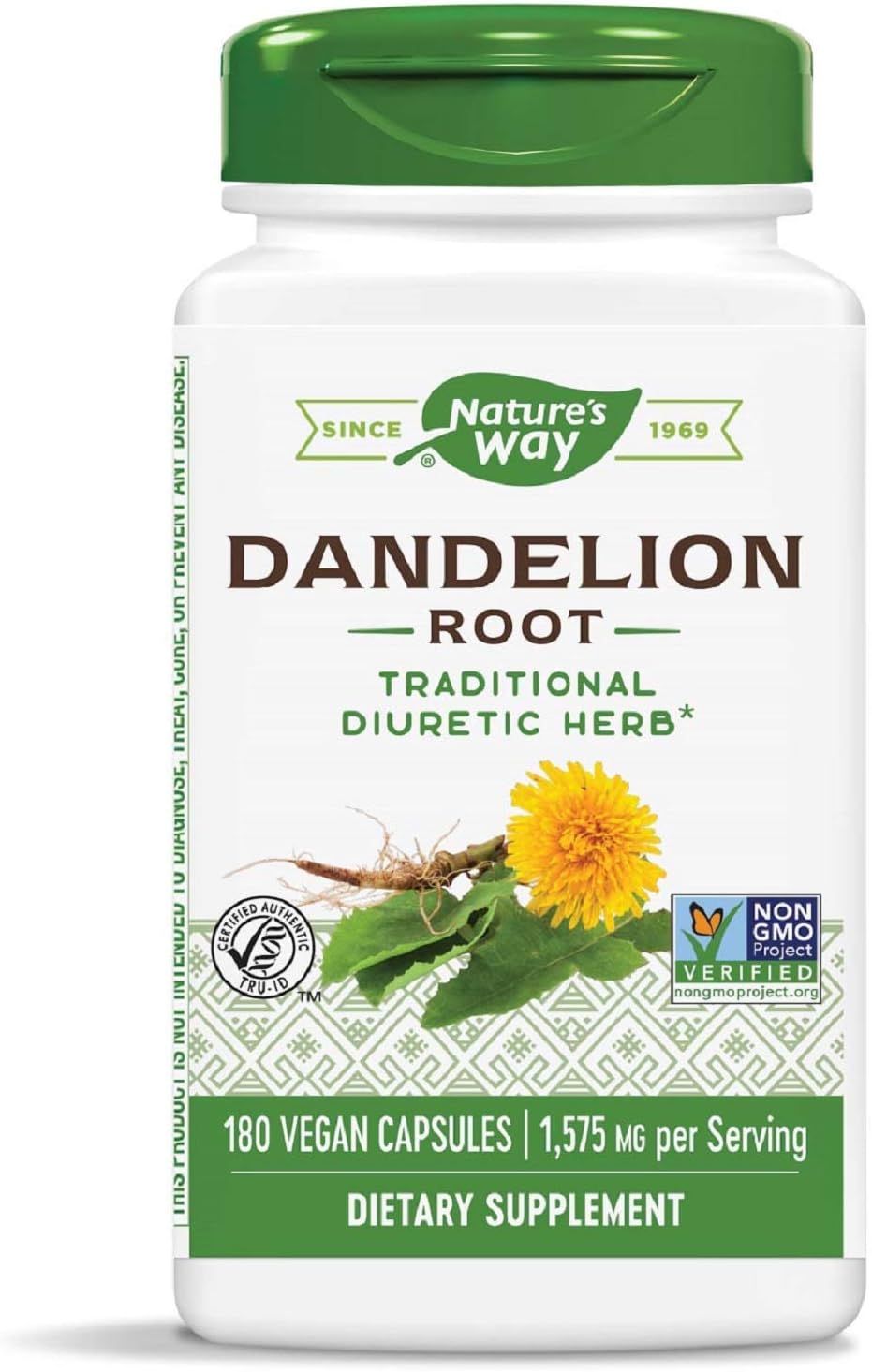
Dandelion root can put a stop to salt-induced swelling, so it’s worth considering Nature’s Root dandelion root. It’s a traditional diuretic herb, and each serving has 1.575 grams of dandelion root per every three capsules. You can also take them with confidence knowing that they’re free of gluten, artificial colors, preservatives, soy, dairy, and more.
Pros:
- Helps with salt-induced swelling and bloating
- Free of gluten, preservatives, and artificial flavors
- Packaging made of recycled materials
Cons:
- Large capsules may be hard to swallow
7. Fennel
Whether it’s brought about by your La Croix addiction or a chickpea overdose, a gas-bloated stomach is a particular kind of misery. Instead of getting rid of it the old-fashioned way (in what you can only hope is a silent and odorless manner), reach for some fennel. "Fennel has anti-inflammatory properties that relax intestinal muscles and allow trapped gas to dissipate,” says Zuckerbrot. And fennel oil happens to be an A+ way to help you energize your way out of an afternoon slump (without caffeine), so there are multiple reasons to pop a tablet after lunch.
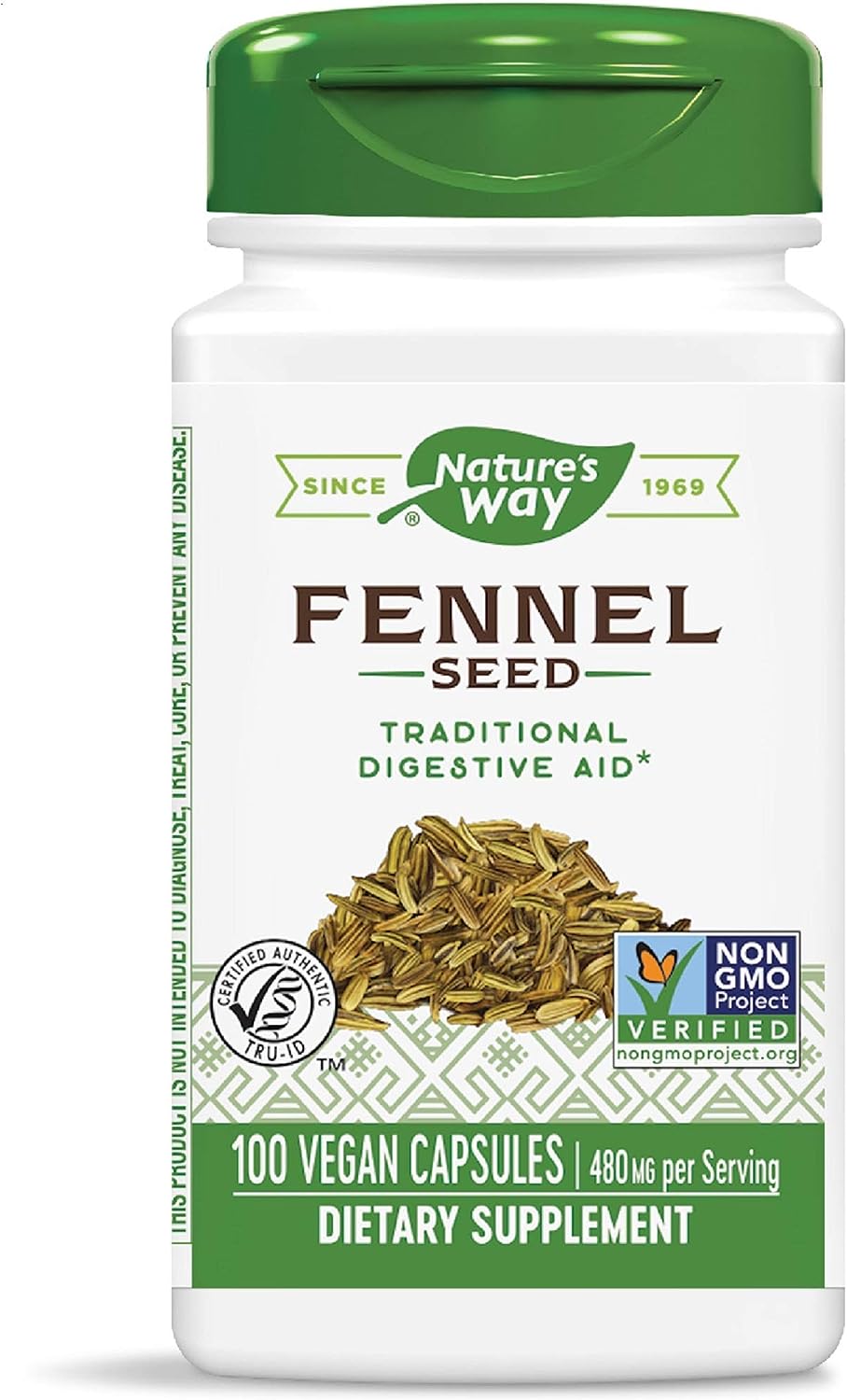
Unlike chia seeds, fennel has anti-inflammatory properties that help to relax muscles in your intestine and release gas (phew). In each box, you’ll get 100 capsules, with each capsule clocking in at 480 mg of fennel. Also to mention: the formula is gluten- and soy-free, and it’s packaged in a recycled bottle. A win for your stomach and the environment.
Pros:
- Packaging made of recycled materials
- Helps to release gas and relax intestinal muscles
- Gluten- and soy-free
Cons:
- None
8. Vitamin C
Megan Gerber, RD, LD, INFCP, CGN, a registered dietitian and founder of Grounded Nourishment, recommends electrolytes like vitamin C. As an osmotic agent, vitamin C draws water to the intestines and helps things get moving and help relieve bloating.
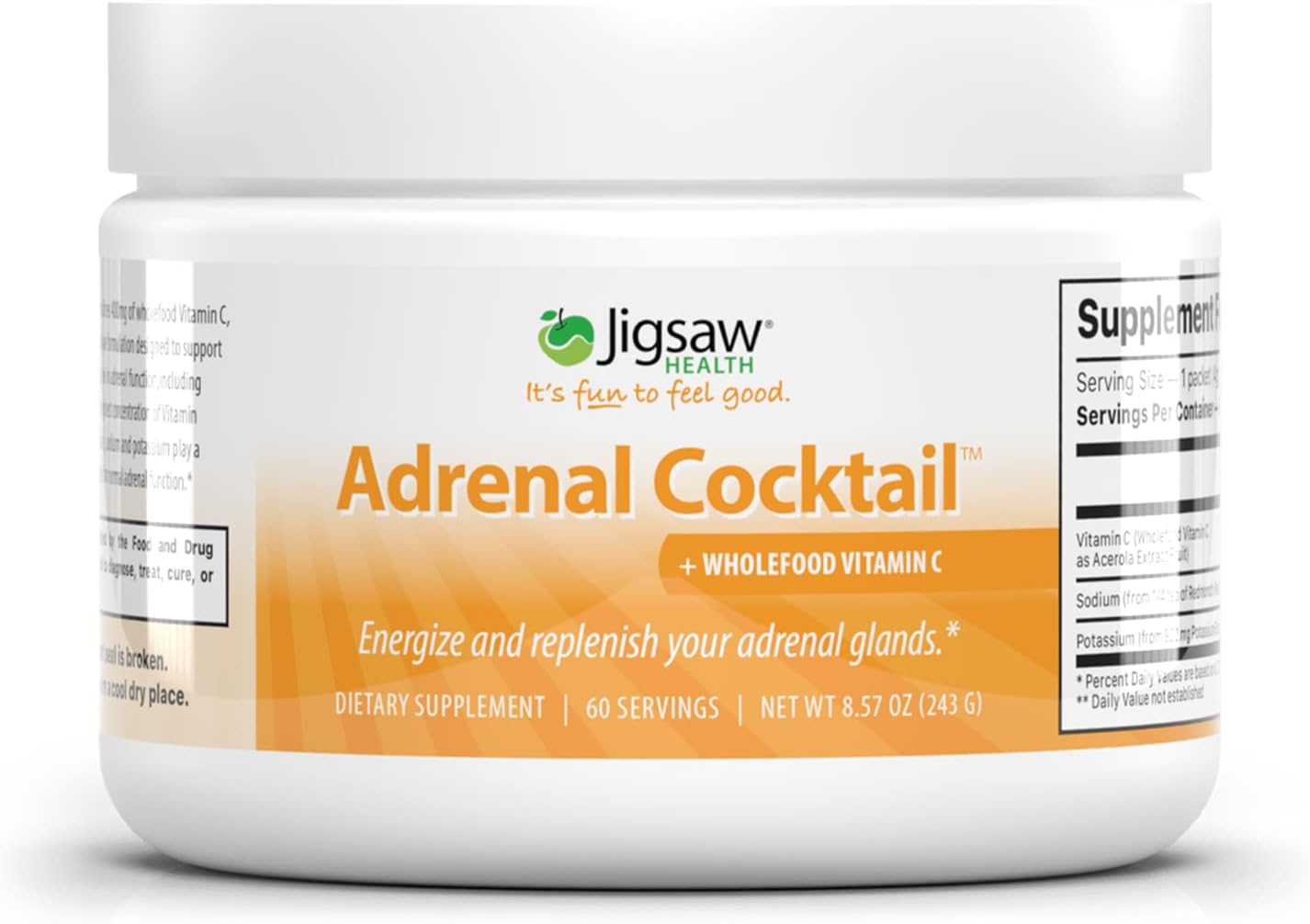
Electrolyte deficiency is often a root cause of constipation, so Gerber recommends vitamin C to combat symptoms of bloat. Each container features 60 servings. Just mix one scoop with water or juice to stir things up. Bonus: It’s unflavored, so you can add this to your beverage of choice.
Pros:
- Unflavored
- Can be added to water or juice
- 60 servings per container
Cons:
- Expensive
- Ringel-Kulka, Tamar et al. “Probiotic bacteria Lactobacillus acidophilus NCFM and Bifidobacterium lactis Bi-07 versus placebo for the symptoms of bloating in patients with functional bowel disorders: a double-blind study.” Journal of clinical gastroenterology vol. 45,6 (2011): 518-25. doi:10.1097/MCG.0b013e31820ca4d6
- Holden, Clare, and Ruth Mace. “Phylogenetic analysis of the evolution of lactose digestion in adults. 1997.” Human biology vol. 81,5-6 (2009): 597-619. doi:10.3378/027.081.0609
- Kawatra, Pallavi, and Rathai Rajagopalan. “Cinnamon: Mystic powers of a minute ingredient.” Pharmacognosy research vol. 7,Suppl 1 (2015): S1-6. doi:10.4103/0974-8490.157990
- Singh, Ompal et al. “Chamomile (Matricaria chamomilla L.): An overview.” Pharmacognosy reviews vol. 5,9 (2011): 82-95. doi:10.4103/0973-7847.79103
- Badgujar, Shamkant B et al. “Foeniculum vulgare Mill: a review of its botany, phytochemistry, pharmacology, contemporary application, and toxicology.” BioMed research international vol. 2014 (2014): 842674. doi:10.1155/2014/842674
Loading More Posts...